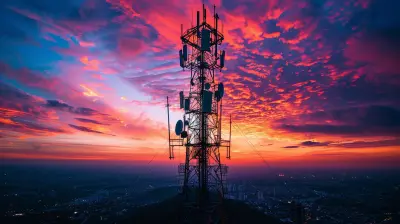Revolutionizing Agriculture with Eco-Friendly Tech Solutions
23 July 2025
Let’s just be blunt — agriculture as we know it is at a crossroads. On one side, we’ve got the traditional methods that got us here. But on the flip side, we’ve got a burning planet, exhausted soils, and food insecurity knocking at our door. So what’s the solution? One word: technology. But not the energy-guzzling, greenhouse-gas-spewing kind. I’m talking about eco-friendly tech solutions — smart, sustainable, and seriously game-changing.
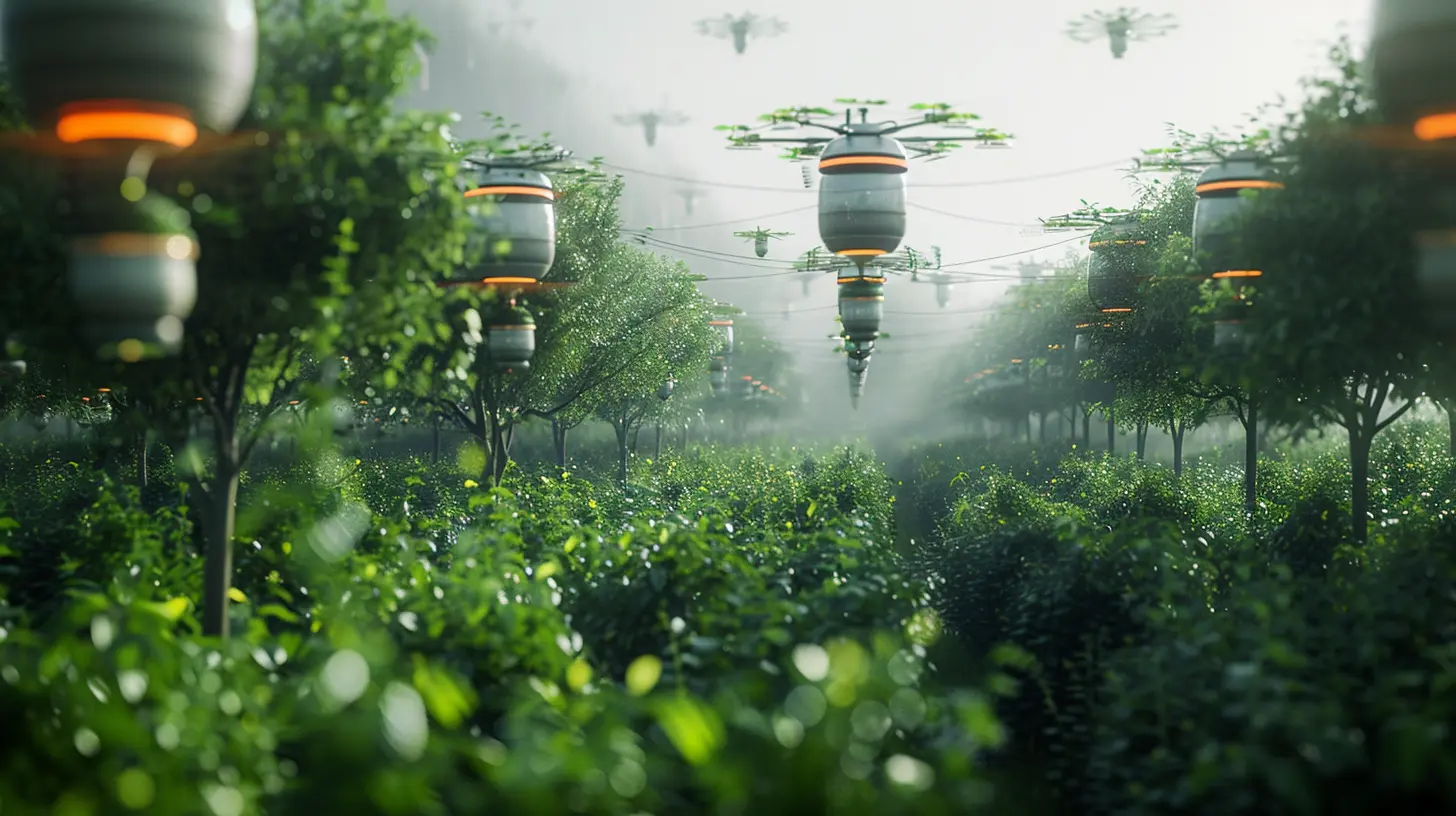
The Agricultural Industry Is Ready for a Shake-Up
For decades, farmers have relied on practices that, quite honestly, aren't doing the planet any favors. Chemical-heavy fertilizers, excessive water use, monoculture farming — these approaches might boost short-term yield but totally wreck long-term sustainability.Now here's where things get real. The United Nations projects that we’ll have nearly 10 billion mouths to feed by 2050. That's a scary thought. If we keep farming the way we are now, we're digging our own grave — literally. That’s why the revolution in agriculture isn’t just a trend; it’s a necessity.
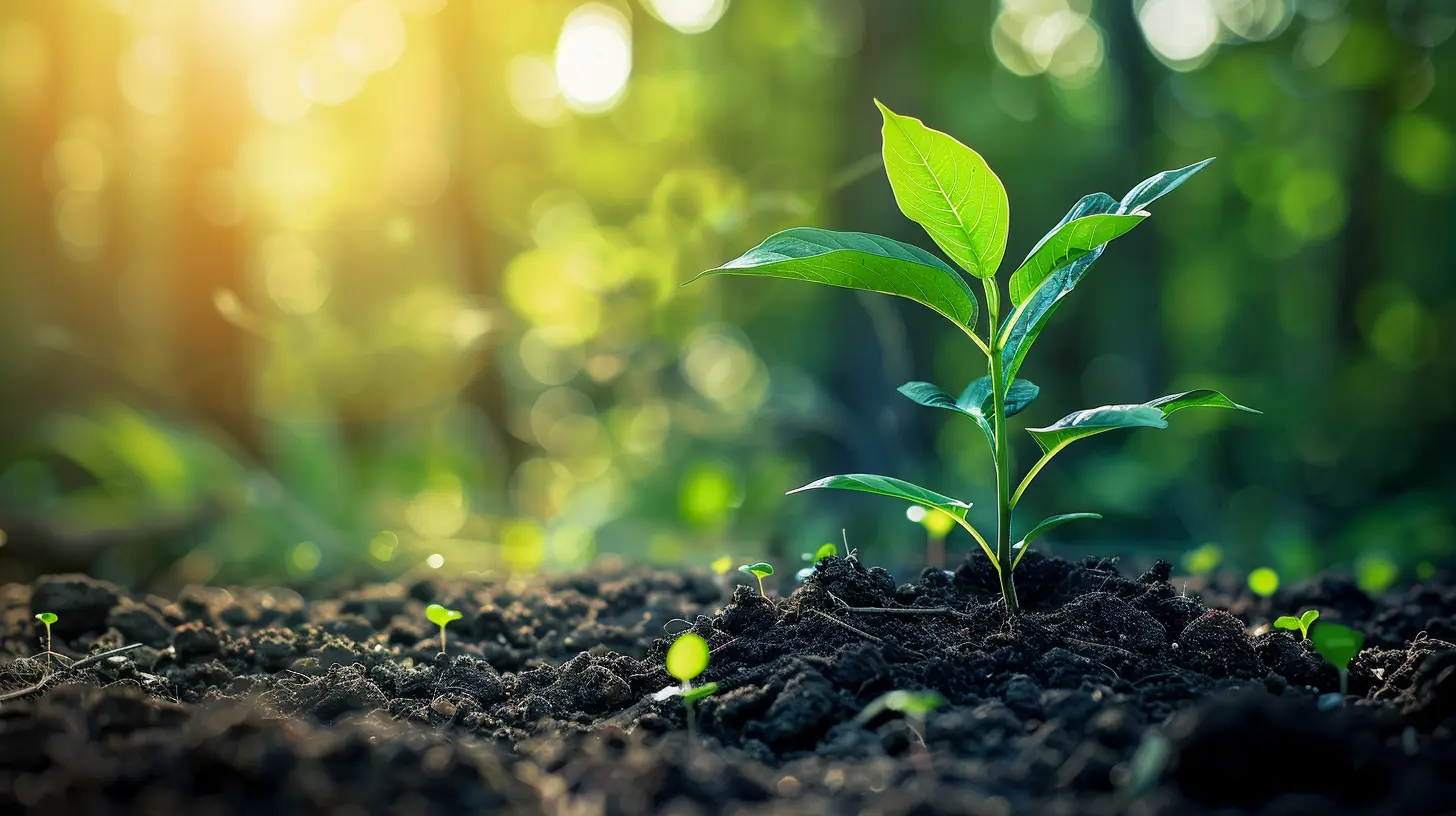
What Even Is Eco-Friendly AgriTech?
Eco-friendly AgriTech (that’s short for Agricultural Technology) is the intersection where innovation meets sustainability. It’s all about using smart tools and practices to grow more food without trashing the planet. Think solar-powered irrigation, drones monitoring crop health, and data-driven decisions replacing guesswork and gut-feeling.But wait — it’s more than just fancy gadgets. This revolution is about changing the mindset behind farming. We’re shifting from a “take and take” mentality to a “grow and give back” philosophy.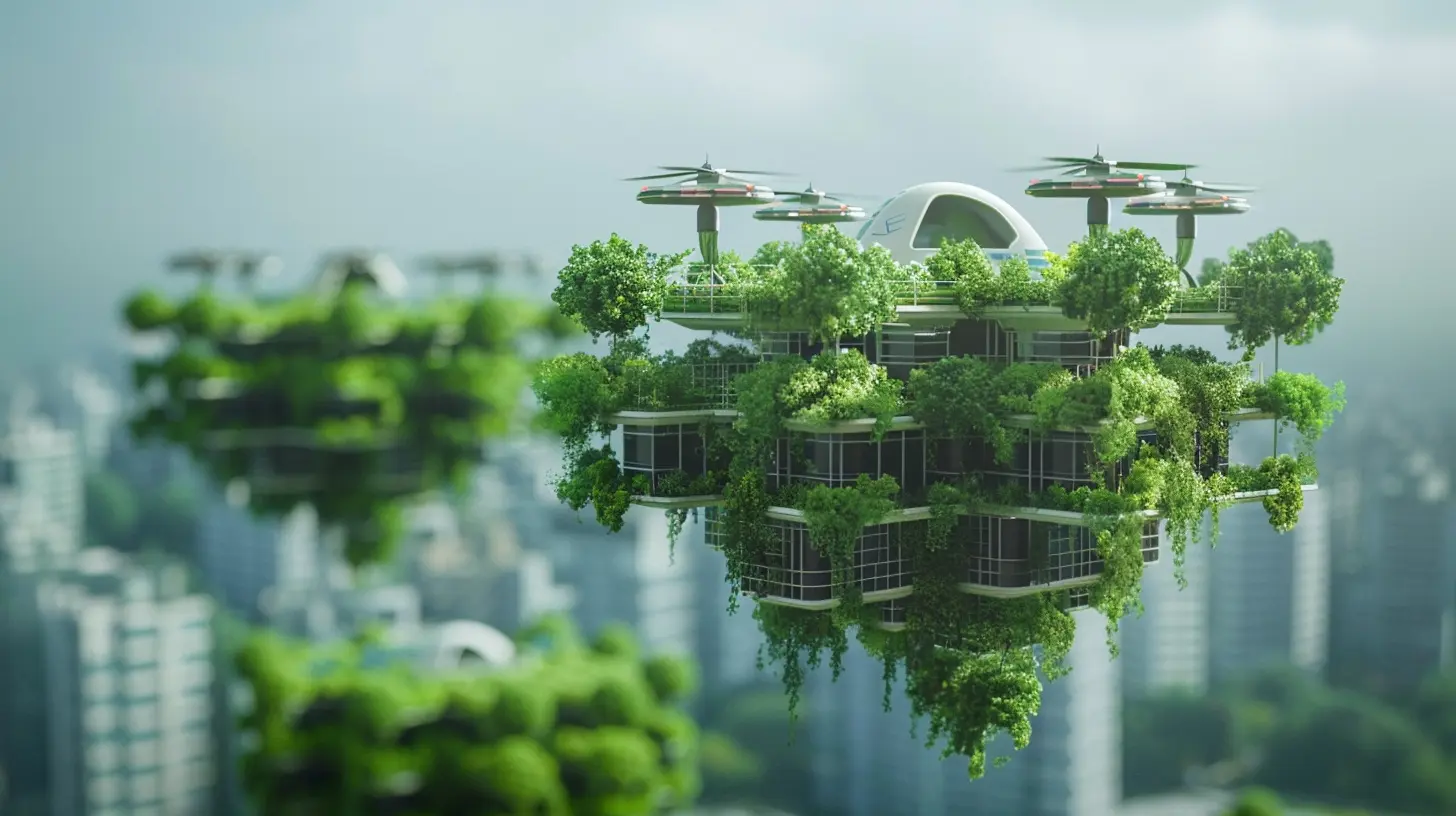
Smart Irrigation: Because Every Drop Counts
Water. We take it for granted, but it’s becoming liquid gold — especially in agriculture, which sucks up about 70% of global freshwater. That’s nuts, right?Traditional irrigation systems are outdated and wasteful. But smart irrigation? It’s next-level. These systems use IoT sensors to monitor soil moisture in real-time. So instead of flooding a whole field and hoping for the best, farmers can deliver just the right amount of water exactly when and where plants need it.
💧 Less water waste.
🌱 Healthier crops.
💸 Lower costs.
That’s a triple-win in my book.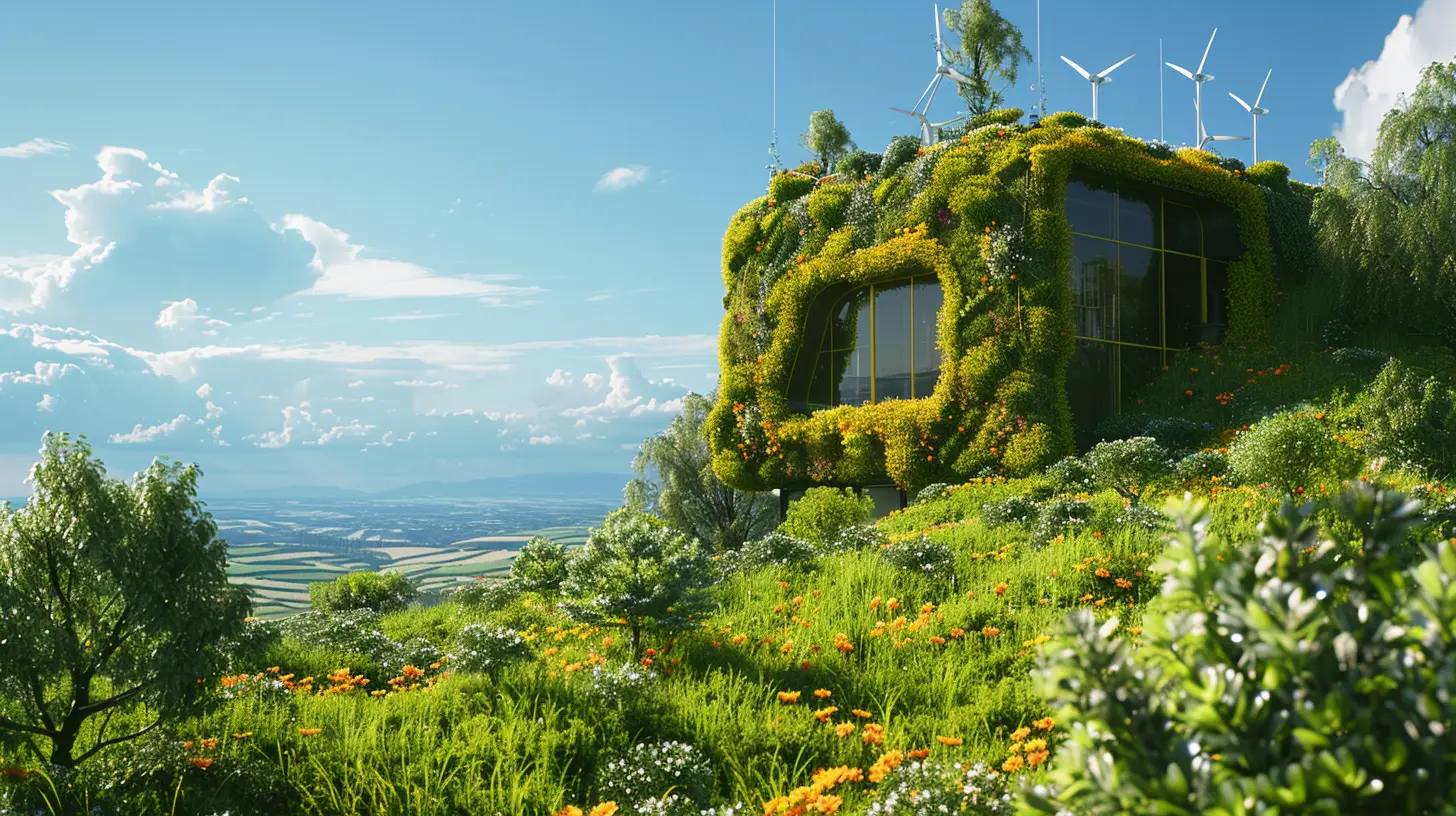
Drones: The Farmers’ New Best Friend
Forget about cropdusting planes of the past — drones have taken over and they’re crushing it.Equipped with high-resolution cameras and thermal imaging, drones give farmers a bird’s-eye view of their fields. They can spot disease outbreaks, pest swarms, or underperforming patches — all without stepping foot on the land.
Some drones even spray pesticides or fertilizers precisely where needed. No more blanket coverage with chemicals that end up in our rivers and oceans. And let’s face it, drones are just cool. Farming with a joystick? Yes, please.
Solar-Powered Everything: Farming Under the Sun
Let’s talk energy. Farms require truckloads of it — to pump water, keep greenhouses running, and power machinery. And traditional sources? Expensive and dirty.That’s where solar energy struts in wearing a cape.
Solar panels on farms aren’t just good for reducing carbon footprints — they slash energy bills and offer energy independence. Farmers can now power their entire operations off-grid. Even better, agri-voltaics (where crops and solar panels share the same land) is proving crops can flourish under partial shade.
Sunlight + tech = sustainability jackpot.
AI and Big Data: Brains Behind the Brawn
Think farming is all pitchforks and hayrides? Not anymore.Artificial Intelligence (AI) and Big Data are giving agriculture a brain transplant. AI algorithms analyze weather patterns, crop data, and soil conditions to forecast yields, detect diseases early, and optimize planting schedules.
Farmers no longer have to play guessing games. They’ve got hard data guiding every move. It's like going from dial-up internet to fiber-optic speeds — once you've tried the smart way, there's no going back.
Robots in the Field: Not Sci-Fi, But Reality
Imagine a robot weeding your garden while you sip your morning coffee. That’s not the future — that’s now.Robotic weeders like the EcoRobotix use AI to identify and remove weeds with near surgical precision. No chemicals. No backbreaking labor. Just pure efficiency.
They also help reduce labor costs and solve workforce shortages — a growing challenge in many agricultural regions. The best part? These bots work 24/7 and never call in sick.
Vertical Farming: Growing Up, Not Out
Let’s be honest — we’re running out of land. Urban sprawl eats up fertile soil, and climate change is turning arable land into dust bowls. The fix? Go vertical.Vertical farming is the architectural answer to limited space. Picture skyscrapers filled with shelves of leafy greens, all thriving under LED lights and hydroponic systems. These high-tech farms use up to 95% less water than traditional fields and grow food year-round in climate-controlled environments.
It’s sustainable. It’s space-saving. It’s futuristic AF.
BioTech for Better Crops: Playing With DNA—Responsibly
Alright, the minute someone hears "genetic modification," they either freak out or roll their eyes. But hear me out.We’re not talking Frankenstein monsters. We’re talking about precision breeding — enhancing crops to make them more resistant to pests, disease, and climate challenges. Scientists are even working on drought-resistant wheat and rice that require far less water.
Done right, biotech is just nature 2.0 — smarter and safer.
Sustainable Livestock Tech: Not Just for Crops
Crops get a lot of spotlight, but livestock matters too. And let's be real — cattle farming is a major methane problem.Eco-friendly innovations are helping here, too. From feed additives that reduce emissions to wearable trackers that monitor animal health, tech is making meat and dairy production cleaner and kinder.
We even have AI that analyzes mooing to detect if cattle are stressed. Yup, there's emotional AI for cows. Welcome to the future.
Blockchain for Transparency: Know Your Farmer (and Your Food)
People care more than ever about where their food comes from. Is it organic? Was it ethically farmed? Is it local?Blockchain tech answers all those questions — no shady labels, no murky supply chains. Every step of a product’s journey is logged and accessible, from seed to shelf. It's traceability on steroids.
For consumers, it’s peace of mind. For farmers, it's proof of authenticity. Win-win.
Challenges? Oh Yeah, They’re There
Look, nothing's perfect. These eco-friendly solutions come with hurdles — high startup costs, lack of training, and poor internet connectivity in rural areas can hold things back.Plus, not every farmer is ready to hand over the reins to robots and algorithms. There's a learning curve, and sometimes the tech is more Silicon Valley than soybean field.
But here’s the kicker: the long-term benefits far outweigh the initial struggles. More yield, less waste, and healthier ecosystems? That’s pretty hard to argue with.
Why This Revolution Matters For Everyone (Not Just Farmers)
Here’s the thing — you don’t have to be a farmer to care about this shift. The way we grow our food impacts everything: the planet, your health, the economy, and even global peace (yeah, food insecurity fuels conflict).Eco-friendly AgriTech means fewer chemicals in your food, lower grocery bills (eventually), and a happier Earth. So even if you’ve never touched soil in your life, this revolution is coming for your dinner plate — in the best way possible.
Final Thoughts: The Green Future Is Now
Let’s not sugarcoat it — our current agricultural system is a ticking environmental time bomb. But the explosion isn’t inevitable. We’ve got the brains, the tools, and the tech to flip the script. Every smart sensor, drone flight, solar panel, and AI prediction is a step towards a cleaner, more resilient future.Farming doesn’t have to be a battle against nature. With eco-friendly tech, it becomes a partnership — and that’s a revolution worth fighting for.
So yeah, the pitchforks are still around. But now, they’ve got company — robots, satellites, sensors, and solar arrays. And together, they're growing a greener world.
all images in this post were generated using AI tools
Category:
Environmental TechAuthor:

Ugo Coleman
Discussion
rate this article
1 comments
Reid McAuley
This article highlights the promising fusion of technology and sustainability in agriculture. Eco-friendly tech solutions not only enhance productivity but also ensure environmental preservation, paving the way for a greener future in farming.
July 25, 2025 at 12:17 PM

Ugo Coleman
Thank you for your insightful comment! I’m glad you recognize the potential of eco-friendly tech in transforming agriculture for a sustainable future.


